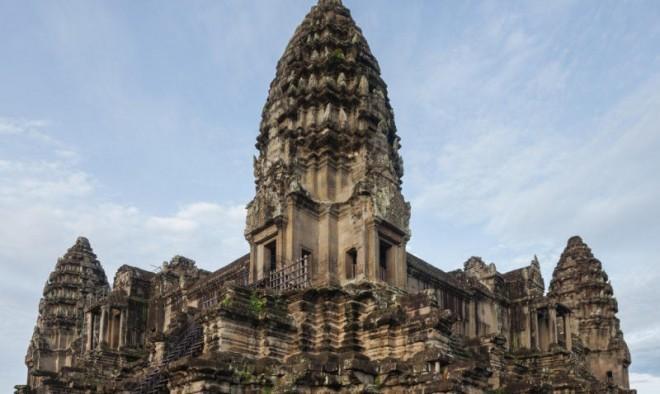Laser technology recently revealed several ancient Cambodian cities — making up what was once the world’s largest empire, in the 12th century — hidden in the jungle.
Archaeologists found the Cambodian cities not far from Angkor Wat, the ancient temple complex, and largest religious monument in the world.
Dr. Damian Evans led a team of researchers who used airborne laser scanning technology to map 734 square miles of the Cambodian jungle on their hunt for the lost cities.
The cities are anywhere from 900 to 1,400 years old, and they’re absolutely massive by medieval standards — about the size of Cambodia’s current capital, Phnom Penh (260 square miles, 1.5 million people) — and were just as densely populated.
The research team discovered the cities by firing lasers into the ground using an airborne laser scanner (ALS) from a helicopter to produce detailed imagery of the Earth’s surface.
The data from the ALS was then downloaded and used to create a 3D map of the terrain to make these extraordinary discoveries. Beyond these new cities, Evans said that the lasers also picked up as yet unidentifiable geometric patterns in the Earth’s surface, which he suspects could have been gardens.
In 2012, Evans conducted similar research in Cambodia using lidar — light detection and ranging — technology. That time, he found that temples such as Beng Mealea and Koh Ker are connected through road and canals to Angkor Wat.
Evans also confirmed that Camobodia’s Phnom Kulen mountain range hides a large city, called Mahendraparvata.
Evans’ research is expected to reshape theories on how Cambodia’s Khmer Empire was founded and developed, and provide more insight into why the empire began to decline in the 15th century.
“I think that these airborne laser discoveries mark the greatest advance in the past 50 or even 100 years of our knowledge of Angkorian civilisation,” Michael Coe, emeritus professor of anthropology at Yale University, told The Guardian.
Lasers Reveal Medieval Cambodian Cities Hidden In Jungle
The cities are anywhere from 900 to 1,400 years old

